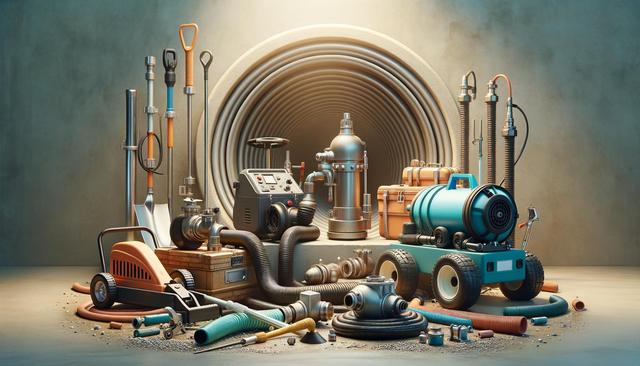Understanding Common Sewer Blockage Symptoms
Many homeowners overlook early warning signs of sewer issues until they escalate into more serious and costly problems. Slow-draining sinks, tubs, and toilets are common indicators that something may be obstructing your sewer line. In some cases, you may hear gurgling noises from your plumbing or detect foul odors near drains, both of which suggest trapped air or waste buildup. These symptoms may not seem urgent at first, but they often point to a developing blockage that could eventually lead to a complete system backup.
Other signs to watch for include:
- Water pooling around basement floor drains
- Multiple drains clogging simultaneously
- Toilets that don’t flush efficiently despite plunging
- Unexplained patches of lush grass in the yard
Recognizing these early symptoms can help you act before the issue affects your entire plumbing system. A professional evaluation can determine whether a basic cleaning is sufficient or if further inspection is needed to diagnose more serious conditions like tree root infiltration or pipe collapse.
Why DIY Methods May Not Be Enough
While it’s tempting to tackle slow drains with chemical cleaners or a plunger, these methods often provide only temporary relief. Over-the-counter drain cleaners can erode older pipes and fail to reach deep-seated clogs in the main sewer line. Similarly, snaking a drain without the proper tools or knowledge may not resolve the root cause of the problem and can even cause damage to the plumbing system if done incorrectly.
Here’s why professional sewer cleaning is often more effective:
- Advanced tools like hydro jetting can clear out heavy buildup more thoroughly
- Technicians can use camera inspections to visually assess the condition of your pipes
- Professionals are trained to identify signs of pipe damage, corrosion, or root intrusion
For persistent or recurring drain issues, relying on professional service ensures the problem is addressed at its source, reducing the risk of future backups and avoiding unnecessary repairs.
Benefits of Regular Sewer Maintenance
Scheduling routine sewer cleaning can prevent major blockages and extend the life of your plumbing system. Just like any other part of your home, your sewer line requires periodic maintenance to function efficiently. During a cleaning, professionals can remove grease, soap scum, hair, and other debris that accumulates over time and restricts water flow.
Regular maintenance also offers these advantages:
- Reduces the risk of unexpected plumbing emergencies
- Improves drainage speed and efficiency
- Helps identify potential issues before they become costly repairs
- Maintains better hygiene and indoor air quality by minimizing odors
By staying on top of sewer upkeep, you not only protect your home’s infrastructure but also avoid the stress and inconvenience of dealing with a major plumbing failure.
When to Call for a Professional Evaluation
Knowing when to bring in a professional can save time and money. If you’ve tried basic remedies like plunging or using non-corrosive drain cleaners and the problem persists, it’s a good idea to contact a licensed plumber. This is especially true if you notice water backing up through floor drains or multiple fixtures clogging at once—clear signals that the issue lies deeper in the sewer system.
Consider calling for an evaluation if you experience:
- Persistent drain odors even after cleaning
- Gurgling sounds from multiple drains
- Visible sewage in your basement or yard
- Water stains near the foundation or inside walls
These symptoms may indicate a more serious condition such as pipe collapse or an obstruction that requires immediate attention. A professional can assess the severity of the issue using specialized tools and recommend the most effective solution.
How a Sewer Cleaning Service Works
When you schedule a sewer cleaning service, the process typically begins with an inspection to determine the location and nature of the blockage. Many professionals use video camera technology to see inside the pipes and identify the cause—whether it’s buildup, a foreign object, or structural damage. Based on the findings, they may use methods such as motorized augers or high-pressure water jetting to clear the line.
The service process usually includes:
- Initial assessment and inspection
- Identification of problem areas
- Selection of the appropriate cleaning method
- Post-cleaning inspection to verify the issue is resolved
Not only does this approach provide a clear solution, but it also helps prevent future problems by ensuring your sewer system is thoroughly cleaned and free of debris. In many cases, professionals will also offer tips to maintain your system moving forward, such as avoiding flushing non-degradable items or disposing of grease properly.
Conclusion: Taking Proactive Steps
For homeowners, recognizing the early signs of a sewer issue is essential to protecting your property and avoiding costly repairs. While DIY methods may offer temporary relief, professional evaluation and cleaning services provide a more reliable and long-term solution. Routine maintenance, timely inspections, and paying attention to drainage performance can go a long way in ensuring your plumbing system remains in good working order. If you’ve noticed slow drains, unpleasant odors, or recurring clogs, don’t wait until the situation worsens—reach out to a trusted plumbing expert to assess and maintain your home’s sewer health.







